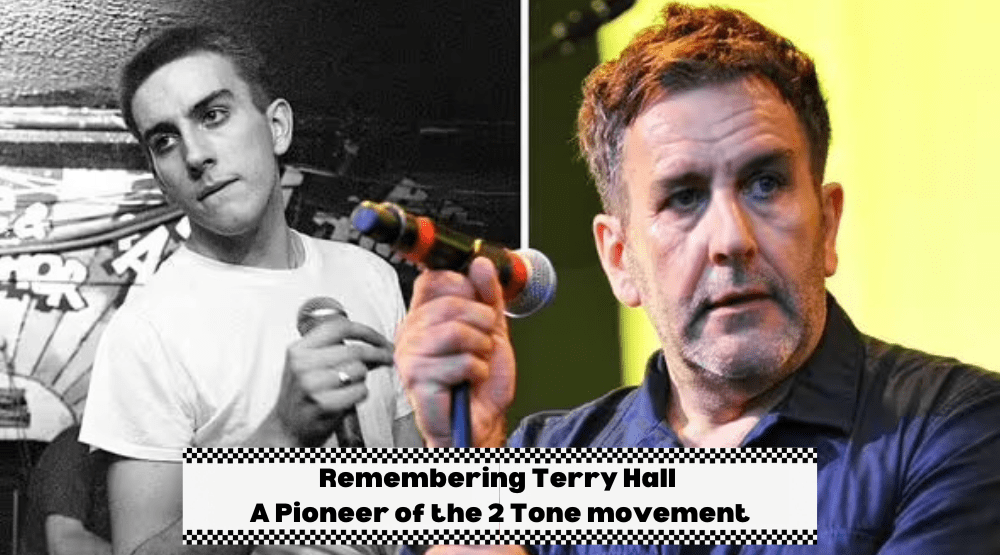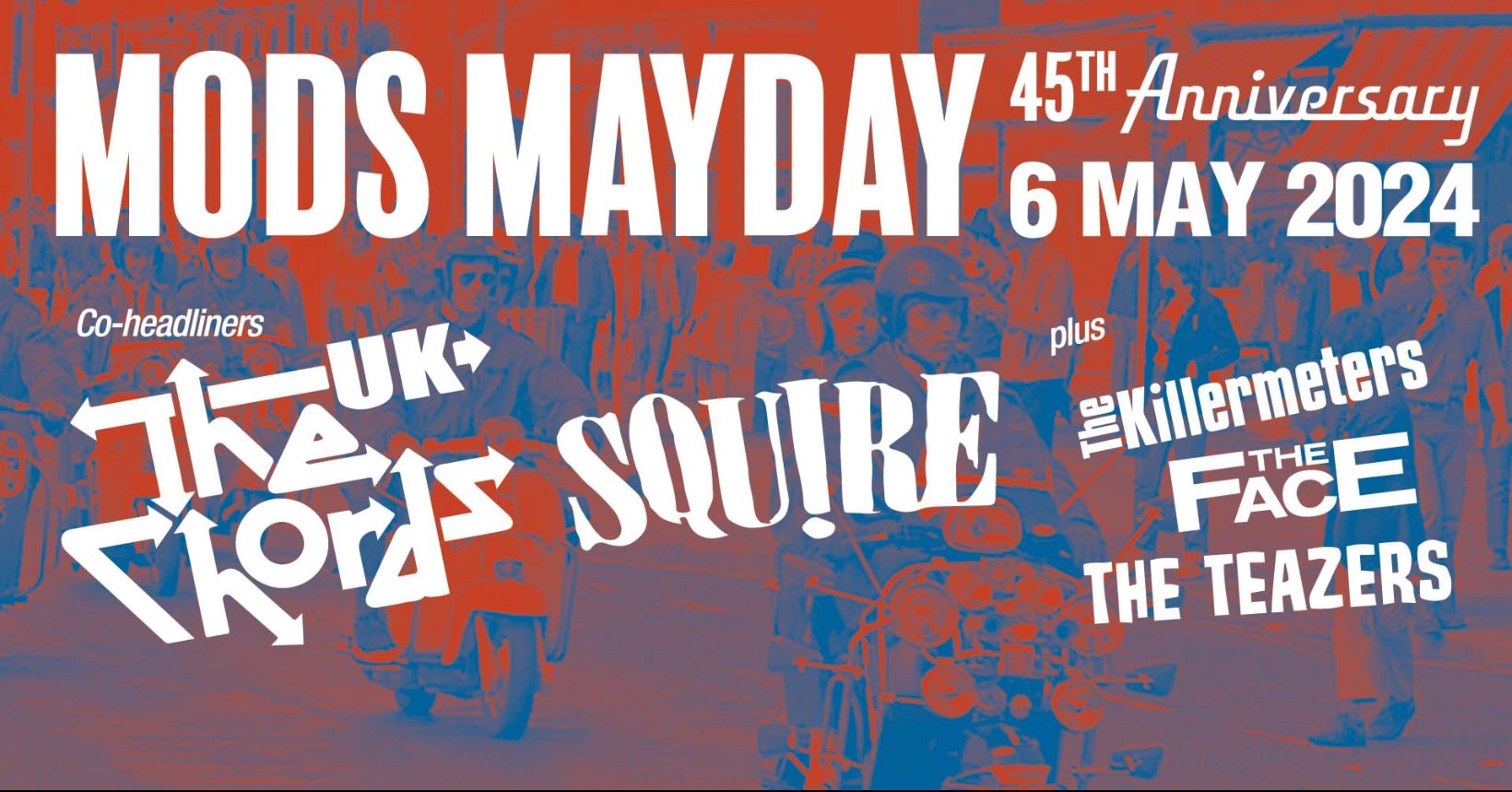Jerry Dammers: An appreciation for the Innovator of 2 Tone

Jerry Dammers, born on May 22, 1955, is a British musician, songwriter, and political activist who has left an indelible mark on the music industry. As the founder, keyboard player, and primary songwriter of the iconic ska band The Specials, Dammers played a pivotal role in the ska revival of the late 1970s and early 1980s. Dammers’ musical journey began at a young age, influenced by 1960s bands like The Who, The Small Faces, and The Kinks. He was drawn to the energy and rebelliousness of punk and the soulful sounds of reggae. These diverse influences would later shape his unique musical style.
In 1977, Dammers formed The Specials, originally known as The Coventry Automatics, with the vision of blending reggae and punk. The band’s multiracial lineup was a deliberate effort to promote racial unity and challenge the racial divisions that were prevalent in British society at the time.
Dammers saw The Specials as a platform to integrate white and black people through music, and their ska-infused sound became a symbol of this unity. The Specials’ music was not just catchy and danceable; it carried a strong social and political message. Dammers’ lyrics tackled issues such as racism, unemployment, and social inequality, making The Specials a voice for the marginalised and disaffected youth of the era. Songs like “Ghost Town,” “A Message to You, Rudy,” and “Too Much Too Young” became anthems for a generation seeking change.
Dammers’ activism extended beyond his music. He was a vocal opponent of racism and apartheid and used his platform to raise awareness about these issues. In 1984, he organized the “Nelson Mandela Freedom Concert” at London’s Wembley Stadium, campaigning for the release of the South African anti-apartheid leader. Dammers’ song “Free Nelson Mandela” became an international hit and played a significant role in raising awareness and ultimately contributing to the end of apartheid.
 In addition to his work with The Specials, Dammers founded the record label Two Tone Record with The Specials. The label became synonymous with the ska revival movement and signed and promoted influential bands such as Madness, The Beat, and The Selecter. Dammers’ vision for Two Tone Records was to celebrate racial unity and combat the rise of the National Front, a far-right political party in the UK.
In addition to his work with The Specials, Dammers founded the record label Two Tone Record with The Specials. The label became synonymous with the ska revival movement and signed and promoted influential bands such as Madness, The Beat, and The Selecter. Dammers’ vision for Two Tone Records was to celebrate racial unity and combat the rise of the National Front, a far-right political party in the UK.
Despite The Specials disbanding in 1984, Dammers continued to pursue his musical career. He formed The Special AKA Orchestra, releasing new material and paying tribute to artists like Sun Ra and other experimental jazz musicians. Dammers’ compositions and performances with The special AKA Orchestra showcased his versatility and creativity as a musician.
Throughout his career, Dammers has collaborated with various artists and produced singles for renowned musicians such as Robert Wyatt, UB40, and Junior Delgado. His impact on the music industry and his commitment to social and political causes have earned him recognition and praise from his peers and music critics alike.
Jerry Dammers’ legacy as a musical innovator and activist is undeniable. His fusion of ska, punk, and reggae, along with his thought-provoking lyrics, challenged societal norms and inspired a generation. Dammers’ unwavering dedication to racial unity and his efforts to raise awareness about social injustices continue to resonate today. His music and activism serve as a reminder of the power of art to inspire change and make a lasting impact on society.
Jerry Dammers’ musical career extends beyond his work with The Specials and Two Tone Records. After the disbandment of The Specials, Dammers formed The Special AKA, a band that continued to explore and push the boundaries of ska and reggae music. In 1984, The Special AKA released the album “In the Studio,” which featured the iconic song “Free Nelson Mandela.” The song was a powerful anthem calling for the release of the South African anti-apartheid leader, who was imprisoned at the time. “Free Nelson Mandela” became an international hit and brought global attention to the injustice of apartheid.
Dammers’ activism didn’t stop at the Nelson Mandela Freedom Concert and the release of “Free Nelson Mandela.” He continued to use his music and platform to raise awareness about social and political issues. In 1986, The Special AKA released the single “What I Like Most About You Is Your Girlfriend,” which addressed the issue of homophobia and advocated for acceptance and equality.
 Throughout his career, Dammers has collaborated with various artists and musicians. He has worked with renowned musicians such as David Byrne, Damon Albarn, and Sinead O’Connor, showcasing his versatility and willingness to explore different genres and styles.
Throughout his career, Dammers has collaborated with various artists and musicians. He has worked with renowned musicians such as David Byrne, Damon Albarn, and Sinead O’Connor, showcasing his versatility and willingness to explore different genres and styles.
In recent years, Dammers has remained relatively quiet in the music industry. However, his influence and impact on the ska and reggae genres, as well as his activism, continue to be recognized and celebrated. His contributions to music and his dedication to social justice have left a lasting legacy that continues to inspire musicians and activists around the world.
Jerry Dammers’ musical and activist journey is a testament to the power of music as a tool for social change. Through his music, he challenged societal norms, fought against racism and inequality, and advocated for justice and unity. His legacy as a musician, songwriter, and activist will forever be remembered and appreciated.
Jerry Dammers’ impact on the music industry and his commitment to social and political causes cannot be overstated. His music continues to resonate with audiences today, and his activism serves as a reminder of the power of music to inspire change.
 Dammers’ influence extends beyond his own musical projects. The ska revival movement that he helped spearhead with The Specials and Two Tone Records had a lasting impact on the British music scene. The movement brought ska and reggae music to a wider audience and paved the way for the success of bands like Madness, The Beat, and The Selecter.
Dammers’ influence extends beyond his own musical projects. The ska revival movement that he helped spearhead with The Specials and Two Tone Records had a lasting impact on the British music scene. The movement brought ska and reggae music to a wider audience and paved the way for the success of bands like Madness, The Beat, and The Selecter.
Dammers’ dedication to racial unity and his opposition to racism and apartheid made a significant impact on the global stage. His efforts to raise awareness about these issues through his music and activism helped to bring about positive change. The Nelson Mandela Freedom Concert, in particular, played a crucial role in raising awareness and support for the anti-apartheid movement.
In addition to his activism, Dammers’ musical contributions have been widely recognized. He has received numerous awards and accolades for his songwriting and musical achievements. In 2008, he was awarded the Ivor Novello Award for Outstanding Contribution to British Music, recognizing his significant impact on the music industry.
Despite his achievements, Dammers has remained humble and committed to his principles. He has consistently used his platform to speak out against injustice and promote equality. His dedication to his beliefs and his refusal to compromise his artistic integrity have earned him the respect and admiration of fans and fellow musicians alike.
Jerry Dammers’ legacy as a musician, songwriter, and activist will undoubtedly endure for generations to come. His music continues to inspire and entertain, while his activism serves as a reminder of the importance of using one’s platform for positive change. Dammers’ contributions to the music industry and his unwavering commitment to social justice make him a true icon and a source of inspiration for aspiring musicians and activists around the world.
LB8eb8185210g70j19k0









One Response
Hi modsofyourgeneration.com webmaster, Your posts are always informative and well-explained.